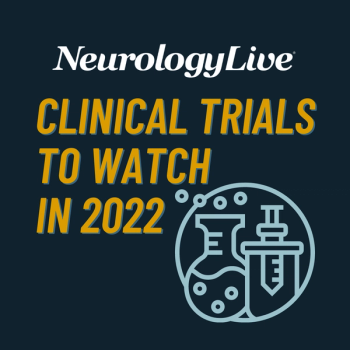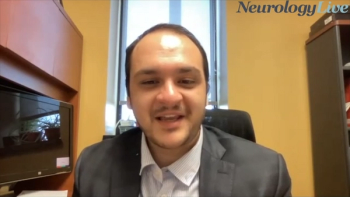
MS and Demyelinating Disorders
Latest News
Latest Videos

CME Content
More News

An expert-led panel discuss the implications of recent findings that suggest a causative relationship between infection with Epstein-Barr virus and development of multiple sclerosis.

Take 5 minutes to catch up on NeurologyLive®'s highlights from the week ending January 28, 2022.

Take a look at 5 of the most-anticipated clinical trial data readouts expected in 2022 that neurology health care professionals should keep their eyes on.

Mind Moments®, a podcast from NeurologyLive®, brings you an exclusive interview with Bridget A. Bagert, MD, MPH. [LISTEN TIME: 32 minutes]

Results from the cohort study suggest that a third dose was also associated with modestly increased levels of anti-SARS-CoV02 spike receptor-binding immunoglobulin G antibodies in those who had reduced protective humoral immunity before reimmunization.

Here's what is coming soon to NeurologyLive®.

YTX-7739 Trials Suspended, ENSURE-2 Study of IMU-838 Initiated, Behavioral Involvement of FTD in ALS
Neurology News Network for the week ending January 22, 2022. [WATCH TIME: 4 minutes]

Take 5 minutes to catch up on NeurologyLive®'s highlights from the week ending January 21, 2022.

The trial is a twin of ENSURE-1, which began in November 2021, and is supported by positive clinical data from the phase 2 EMPhASIS trial.

Following the publication of data suggesting that EBV is a leading cause of MS, the director of the Ochsner MS Center and an investigator in an EBV-specific therapy clinical trial offered her reaction to the data.

Here's what is coming soon to NeurologyLive®.

Expert clinicians offer their insight on costs of Alzheimer drug development, a new agent for generalized myasthenia gravis, migraine in the emergency department, educational sleep medicine “boot camps”, AES 2021, and more.

The data, which included information from more than 10 million adults collected over 20 years, lend credence to a long-held theory in the field.

Take 5 minutes to catch up on NeurologyLive®'s highlights from the week ending January 14, 2022.

The authors noted that the findings indirectly support the use of highly effective disease-modifying treatments from the early stages of disease in those with pediatric-onset MS, even in the absence of persistent physical disability.

Catch up on any of the neurology news headlines you may have missed over the course of the last month, compiled all into one place by the NeurologyLive® team.

Reflecting on 2021, Mitzi Joi Williams, MD, the founder and CEO of Joi Wellness Group MS Center discussed the positive repercussions of the COVID-19 pandemic, which allowed for more freedom when sharing data.

Mitzi Joi Williams, MD, founder and CEO of Joi Wellness Group Multiple Sclerosis Center, shared her thoughts on changes to the MS care model over the past year, as well as how the pandemic and telehealth have affected care for underrepresented populations.

The research assistant professor at the Buffalo Neuroimaging Analysis Center provided context on how different forms of multiple sclerosis impact cognitive decline in patients. [WATCH TIME: 4 minutes]

The founder and CEO of Joi Wellness Group Multiple Sclerosis Center explained her reasoning as to why she hopes telemedicine is here to stay. [WATCH TIME: 4 minutes]

Here's what is coming soon to NeurologyLive®.

Discussing the willingness to share data during the pandemic, the founder and CEO of Joi Life Wellness Group Multiple Sclerosis Center spoke to the positive effect of collaboration in the MS field. [WATCH TIME: 2 minutes]

Neurology News Network for the week ending January 8, 2022. [WATCH TIME: 3 minutes]

Take 5 minutes to catch up on NeurologyLive®'s highlights from the week ending January 7, 2022.

The founder and CEO of Joi Life Wellness Group Multiple Sclerosis Center commented on the effect of the pandemic on needs for underrepresented populations in the multiple sclerosis space, as well as the pros and cons of telehealth. [WATCH TIME: 3 minutes]



















